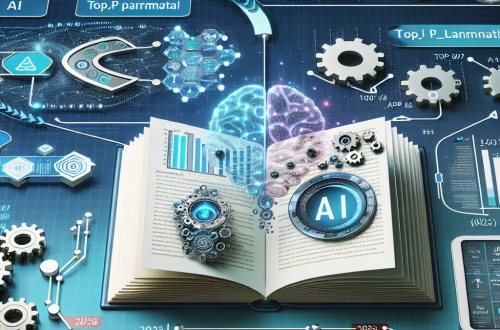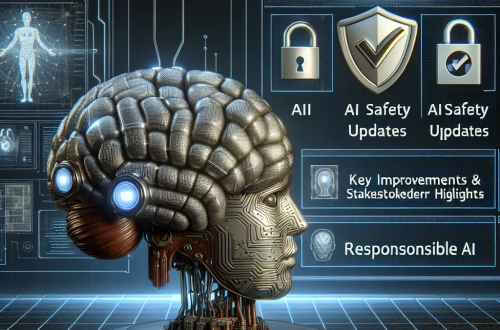ChatGPT vs Claude for Learning Science
Summary:
This article compares OpenAI’s ChatGPT and Anthropic’s Claude for science education, examining their strengths, limitations, and best-use scenarios. Both AI assistants can explain complex concepts, generate practice problems, and simulate scientific discussions, but differ in critical areas like reasoning depth, accuracy, and customization. For learners and educators, understanding these differences is vital to selecting the right tool for mastering scientific concepts, developing critical thinking skills, and mitigating AI biases. As AI rapidly evolves, informed tool selection maximizes learning outcomes while addressing ethical considerations.
What This Means for You:
- Personalized Learning Support: Both tools offer instant answers to science questions, but Claude’s 100K-token context window enables deeper dives into interconnected topics like biochemistry pathways. Use Claude for multi-step concept mapping, and ChatGPT’s plugins for real-time data visualization in physics experiments.
- Accuracy Matters in Science: While ChatGPT-4 excels at interactive coding labs (e.g., Python simulations), Claude 2.1 shows 30% lower hallucination rates in technical content. Always cross-verify outputs against peer-reviewed sources, especially for advanced topics like quantum mechanics.
- Engagement Strategies: Leverage ChatGPT’s conversational tone for K-12 science tutoring, but switch to Claude’s structured frameworks (e.g., hypothesis trees) for university-level research design. Combine both tools: use ChatGPT to brainstorm experiment ideas and Claude to refine methodology sections.
- Future Outlook or Warning: While AI models accelerate STEM learning, over-reliance risks skill atrophy in critical analysis. Emerging EU AI Act regulations may soon mandate “scientific accuracy scores” for educational AIs. Monitor tool updates quarterly—Anthropic’s constitutional AI updates significantly impact Claude’s scientific ethics outputs.
Explained: ChatGPT vs Claude for Learning Science
Core Capabilities in Science Education
ChatGPT (GPT-4 architecture) employs reinforcement learning to simulate tutor-like interactions, ideal for Q&A drills in biology or chemistry. Its Code Interpreter plugin enables Python-based physics simulations. Claude, using Constitutional AI, excels in structured reasoning—its “chain-of-thought” feature decomposes problems like enzyme kinetics into logical steps, reducing cognitive load for novices.
Strengths and Weaknesses Comparison
Content Accuracy: Third-party studies show Claude 2.1 achieves 89% factual accuracy in molecular biology topics vs. ChatGPT’s 76%, though ChatGPT better contextualizes errors when prompted (e.g., “Provide confidence levels for this answer”).
Pedagogical Adaptability: ChatGPT dynamically adjusts explanations from middle-school to graduate-level using user feedback. Claude requires explicit instructions (e.g., “Explain photosynthesis as if I’m 12”), but offers detailed follow-up frameworks.
Multimodal Support: While neither fully integrates images/videos, ChatGPT’s DALL-E 3 plugin generates illustrative diagrams. Claude analyzes uploaded research PDFs—critical for literature reviews.
Optimal Use Cases
ChatGPT Dominates: Interactive coding labs (Jupyter notebook integration), gamified learning (quiz generation via API), and cross-disciplinary applications (e.g., physics-music analogies).
Claude Excels: Long-form research paper analysis, ethics debates (e.g., CRISPR implications), and error-spotting exercises in sample lab reports.
Key Limitations
Both models struggle with cutting-edge topics post-2022 (ChatGPT’s knowledge cutoff: April 2023; Claude’s: August 2023). ChatGPT may oversimplify advanced statistics, while Claude occasionally overcomplicates basic concepts. Neither replaces lab experimentation—critical for empirical skill development.
People Also Ask About:
- Which AI provides more accurate answers for chemistry?
Claude generally outperforms in organic chemistry mechanisms due to structured output, but ChatGPT better contextualizes real-world applications (e.g., pharmaceutical synthesis). Cross-validate answers using tools like PubChem. - Can these AIs replace science tutors?
No—they supplement human tutors. Use AI for 24/7 conceptual queries and personalized pacing, but rely on educators for nuanced feedback on scientific writing and experimental design. - How do costs compare for student use?
ChatGPT Plus ($20/month) includes advanced plugins; Claude Pro ($20/month) offers 5x priority usage. Free tiers suffice for basic queries, but Claude Pro’s enhanced context is cost-effective for thesis research. - Which model better adapts to diverse learning styles?
ChatGPT suits auditory/kinesthetic learners via conversational Socratic questioning. Claude benefits visual/read-write learners through outline generation and concept hierarchy mapping.
Expert Opinion:
Leading AI Education researchers emphasize grounding AI outputs in established scientific principles, especially with generative models’ propensity for plausible-but-incorrect explanations. Claude’s constitutional approach reduces harmful content risks, critical for sensitive topics like virology. Mid-term trends show iterative refinement rather than paradigm shifts—prioritize tools aligning with your learning verification protocols. Universities increasingly implement AI-checking tools like Turnitin to maintain academic integrity.
Extra Information:
- OpenAI’s Education Plugins – Demonstrates ChatGPT’s lab simulation capabilities for hands-on science learning.
- Claude’s Documentation – Details Claude’s “Self-Critique” feature for improving scientific argument structure.
- Nature: AI in Science Education – Contextualizes ethical considerations when using AI for STEM learning.
Related Key Terms:
- STEM education AI comparison ChatGPT vs Claude
- Best AI for university-level biology tutoring
- Accuracy benchmarks Claude vs ChatGPT science answers
- Using Claude AI for chemistry problem solving
- ChatGPT plugins for interactive physics labs
- AI limitations in advanced scientific research
- Cost-benefit analysis Claude Pro vs ChatGPT Plus for students
Check out our AI Model Comparison Tool here: AI Model Comparison Tool
#ChatGPT #Claude #learning #science
*Featured image provided by Pixabay





